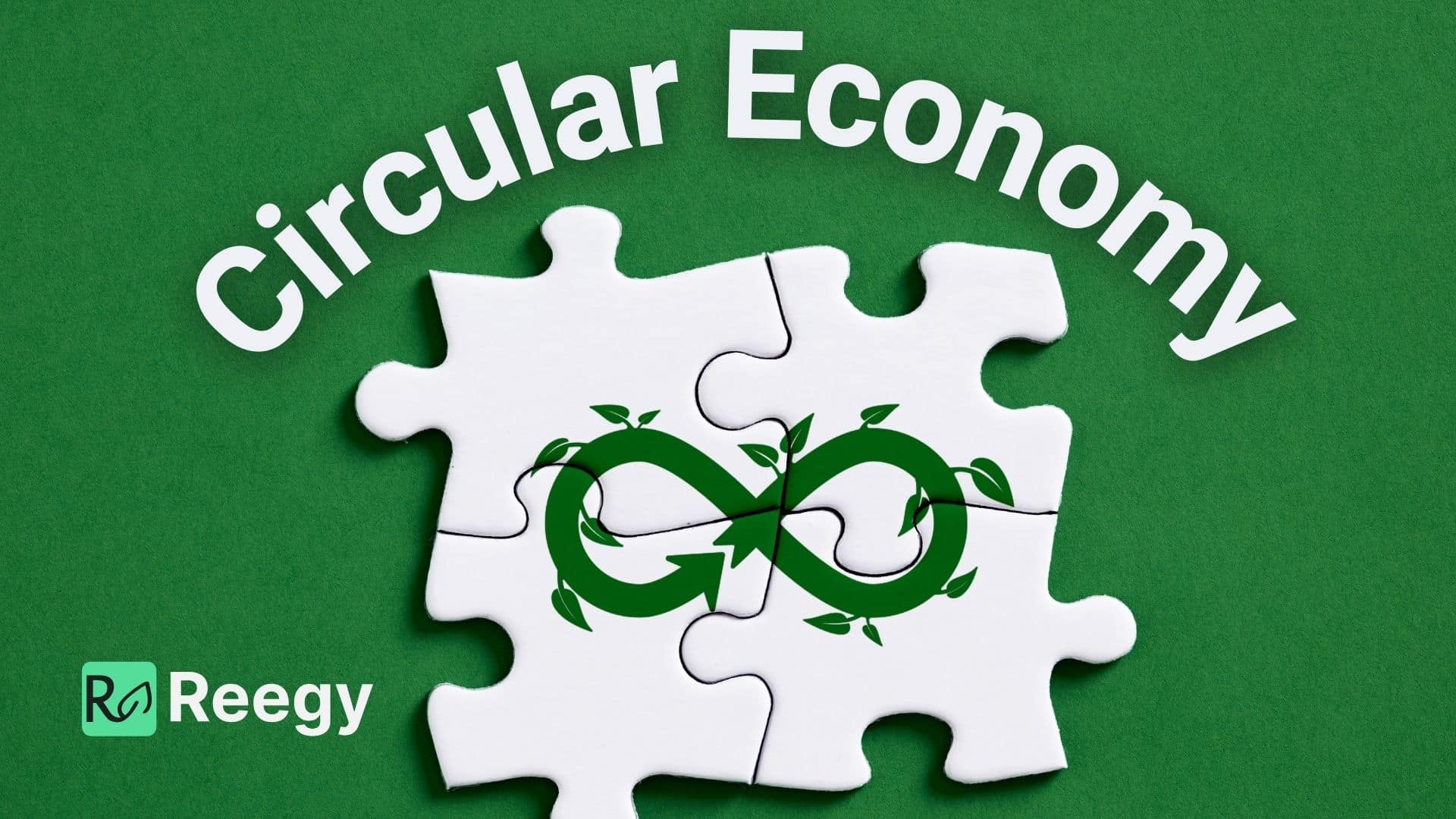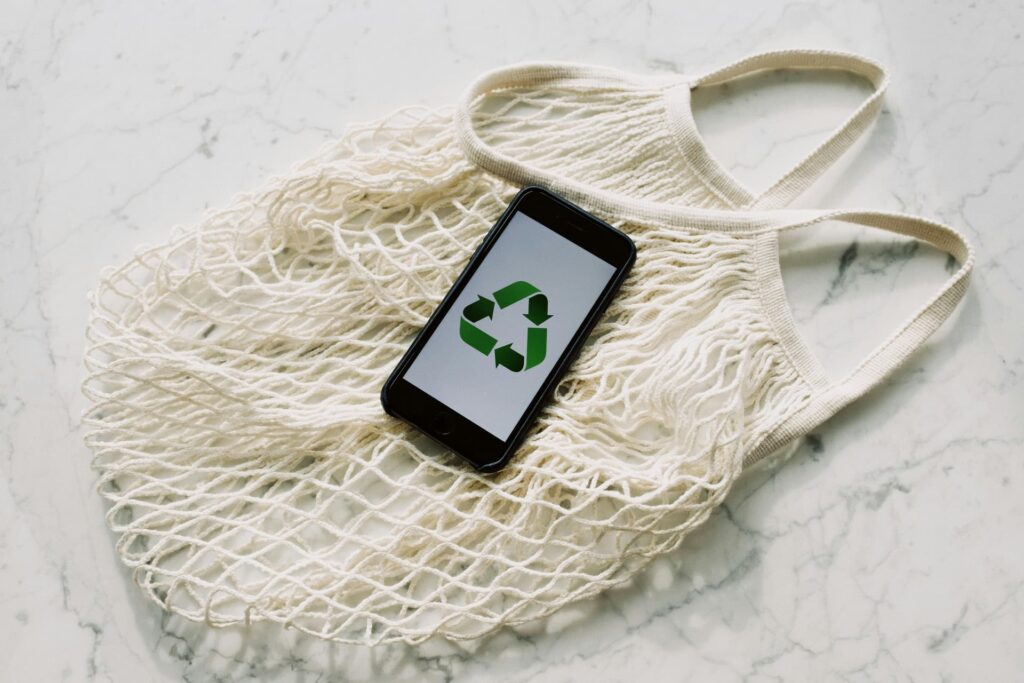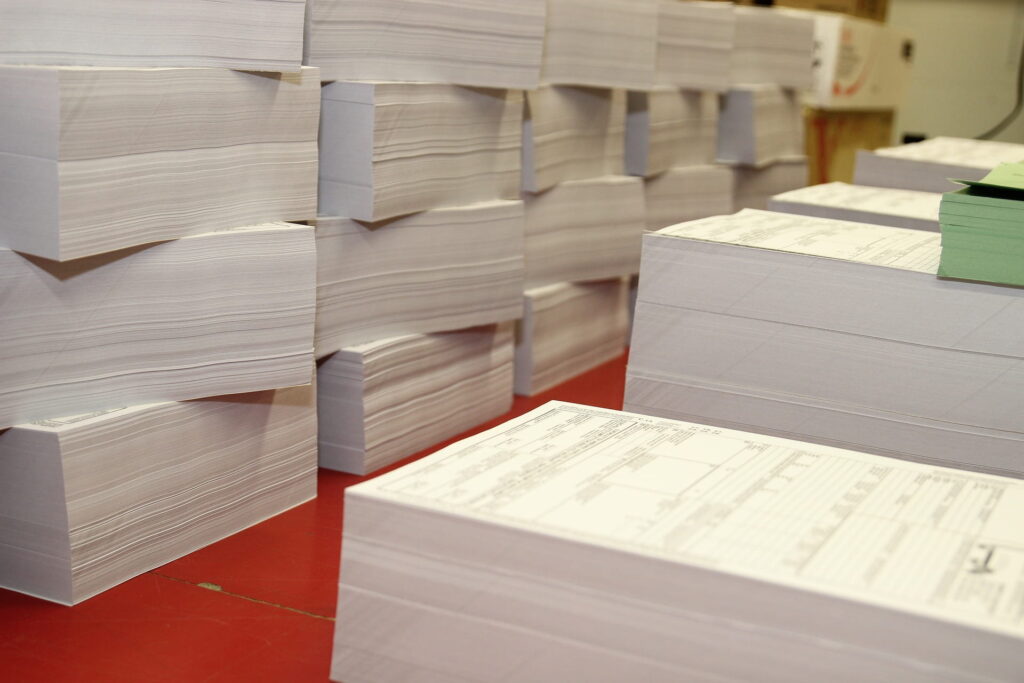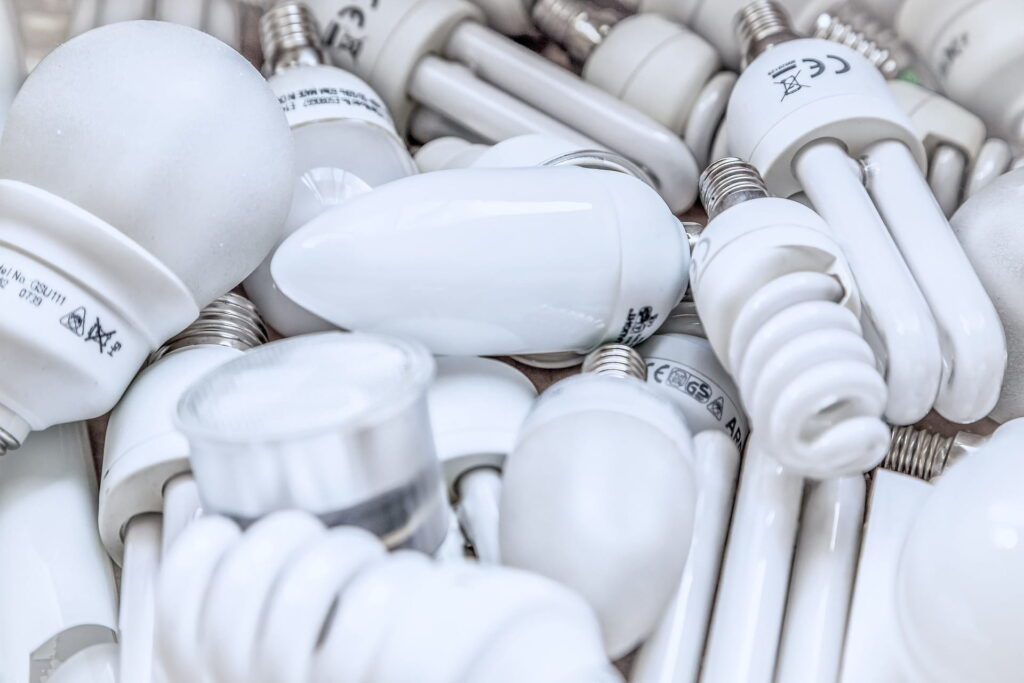
The concept of the circular economy is reshaping the way businesses view resource management, sustainability, and profitability. Moving away from the traditional “take, make, dispose” linear model, the circular economy emphasizes keeping resources in use for as long as possible through practices like recycling, refurbishing, and designing products for reuse.
At Reegy, we’re a big fan ourselves and in our guide you’ll learn how to adopt some best practices for the circular economy at your business yourself!
What is Circular Economy?
The circular economy is a sustainable economic model that focuses on minimizing waste and maximizing the reuse and repurposing of resources.
While this approach has been in use since the beginning of time in many parts of the world, it challenges the “take, make, dispose” model many companies have followed in modern times. Unlike the linear economy, where materials are extracted, used, and discarded, the circular economy aims to keep resources in use for as long as possible.
By designing products and systems that emphasize reuse, recycling, and refurbishment, it creates a closed-loop system that minimizes waste and environmental impact.

This model operates on three key principles:
- Designing out waste and pollution: Products are designed for durability, repairability, and recyclability to eliminate unnecessary waste.
- Keeping products and materials in use: This involves practices like refurbishing, repurposing, and creating secondary markets for used goods.
- Regenerating natural systems: Circular practices focus on using renewable resources and restoring ecosystems, rather than depleting them.
By adopting circular principles, businesses can reduce costs, enhance resilience, and demonstrate their commitment to sustainability—all while tapping into new revenue streams.
Let’s look at how you can implement this in your business model and operations.
Design for Circularity
At the heart of the circular economy lies resource efficiency. By designing products and systems that minimize waste and maximize the lifecycle of materials, businesses can significantly reduce costs associated with raw material extraction and waste disposal.
For instance, our customer Agentur für Präqualifizierung was able to cut down paper usage across all their processes by over 75% by introducing an industry-first digital certification process. With over 7,000 customers, this meant roughly 500,000 sheets of paper saved annually just from one process alone. This approach not only reduces their environmental footprint but has also led to significant cost savings. And that’s leaving aside the fact they’re now saving 5,000 trees every year!
Sometimes, simple tweaks can have an enormous impact!

Recycle When Possible
Our motto is: “If you can’t reduce it, at least recycle it“. (We’re still working on the slogan…)
Recycling is another key aspect of the circular economy and something almost every company can benfit from. By recovering materials from products at the end of their lifecycle, you can reintegrate valuable resources into productio and reduce the dependence on raw materials. Companies that embrace circular practices often discover substantial cost savings and reduced environmental impact.
Make Use of Refurbished Products
Looking to purchase company laptops or phones? Why not go for refurbished products instead of buying new!
Manufacturers across the board now offer refurbished products from laptops, to phones, cameras, lights, and even furniture. Companies can significantly reduce their scope 3 emissions and make a great statement to their customers that they care about the environment. We use refurbished phones and computers ourselves and have always been super happy with the results.
You could also offer a refurbed program yourself!
Rethink Revenue Streams
Transitioning to a circular economy opens doors to innovative business models that go beyond traditional sales. Companies can explore opportunities in leasing, subscription services, and product-as-a-service offerings, where customers pay for usage rather than ownership.
For instance, instead of selling appliances outright, businesses could offer a maintenance-inclusive subscription service, ensuring the product’s lifecycle is extended while securing long-term customer relationships.
Strengthen Your Brand Reputation
In an era where consumers and investors are prioritizing sustainability, adopting circular practices can be a great way to differentiate yourself from the competition. Moreover, many regulatory bodies and industry standards are increasingly favoring circular practices in sustainability reporting, making early adopters more resilient to future compliance requirements.
For example, a retail client we supported launched a take-back program for used clothing. By partnering with Reegy to track and report their progress, they improved customer engagement and attracted eco-conscious shoppers.
Circular practices aren’t just good for the planet—they’re great for your brand.
Why Circular Economy Should Not be Ignored
Businesses that do not transition to circular principles face growing challenges. Ignoring the circular economy is not just an environmental oversight—it’s a missed opportunity.
Dependence on Resource Prices
Linear production models heavily rely on finite resources. As prices rise and availability decreases, businesses face higher costs and supply chain disruptions. Circular practices, like recycling and resource recovery, protect against these risks while reducing costs. Think about the impact just a few percent fewer raw materials purchases would have on your balance sheet.
Loss of Customer Trust
Consumers, especially Millennials and Gen-Z, increasingly prefer sustainable products. If your business fails to adopt circular principles it may risk alienating some of your key demographics. We like to remind our customers that trust and loyalty are built on demonstrating commitment to sustainability.

Missed Opportunities for Innovation
Circularity drives innovation. Companies like IKEA, Apple, and Amazon have launched refurbished product lines that are not only profitable but also enhance their sustainability credentials. Businesses sticking to old models risk being left behind as industry leaders innovate and evolve.
Circular Economy is Now
Sustainability is no longer a “nice-to-have” but a “must-have.” Companies that adopt circular economy principles are better equipped to navigate market changes, regulatory shifts, and consumer demands. Circularity ensures resource resilience, fosters innovation, and creates lasting business value.
At Reegy, we’ve helped businesses of all sizes integrate circular practices, track their progress, and demonstrate their impact. Whether it’s optimizing recycling programs, implementing refurbished products, or rethinking revenue models, we’re here to guide you every step of the way.
Schedule a meeting us today, and let’s discuss how your business can thrive in a circular economy.
Frequently Asked Questions about Circular Economy
Q: What is the circular economy, and why is it important for businesses?
A: The circular economy is a model focused on minimizing waste and keeping resources in use for as long as possible through recycling, refurbishing, and reuse. It helps businesses reduce costs, innovate, and improve sustainability.
Q: What are some examples of circular economy practices?
A: Examples include using refurbished products, implementing take-back programs, designing products for reuse, and adopting leasing models.
Q: How can Reegy help my business adopt circular economy practices?
A: Reegy offers tools and insights to help businesses measure, manage, and implement sustainability strategies, including circular economy practices. Schedule a consultation today to learn more.
Reegy is a complete software solution for ESG & Carbon Footprint Management. Our Reegy Eco Hub enables enterprises, financial institutions and governmental organizations to manage their climate action in one central location along the entire value chain. Track, measure, reduce, and offset your carbon emissions, disclose them to regulators, stakeholders, and customers and lead your company to Net Zero on autopilot!